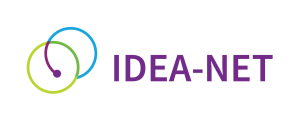Cologne University, Germany
The activities that the DGDM has carried out (in the last two years) with regard to equal access/inclusion/diversity are: support and counselling for students and university staff; lectures, workshops, seminars for students, faculty and non-teaching staff; training courses for peer educators; public promotion (e.g. production of media content such as podcasts); and improving physical accessibility. At this university, lectures, training courses and public promotion were the activities with the greatest impact because they reached out to a great number of staff and students.
In addition to activities to support inclusion, Cologne University implements measures/activities to counter exclusionary and discriminatory practices through binding policy (legislation), strategy/action plan(s), recommendations/guidelines and preventive programmes.
IDEA-net: Expanding the network of Inclusion, Diversity, Equity and Access (IDEA) practitioners in higher education through institutional capacity building
Project ref: 2022-1-NL01-KA220-HED-000089789

This project has been funded with support from the European Commission. This website reflects the views only of the authors, and the Commission cannot be held responsible for any use which may be made of the information contained therein.

